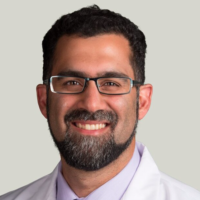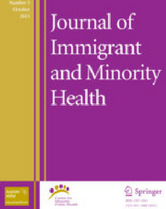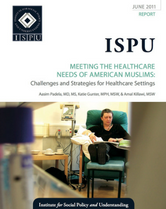
Aasim Padela

Expert
Dr. Aasim Padela is an internationally-recognized thought and research leader in the fields of Muslim health disparities and Islamic Bioethics. In addition to leading the Initiative on Islam and Medicine, he maintains an active clinical, research, and clinical ethics practice at the Medical College of Wisconsin.
Dr. Padela holds an MD from Weill Cornell Medical College and received an MSc in Healthcare Research from the University of Michigan. He completed residency in emergency medicine at the University of Rochester, and clinical medical ethics training at the MacLean Center for Clinical Medical Ethics at the University of Chicago. He also holds Bachelor’s degrees in Biomedical Engineering and Classical Arabic from the University of Rochester, and has studied Islamic theology and law in seminary and academic settings nationally and abroad.
As a scholar, Dr. Padela’s focus is on the intersections of healthcare, bioethics, and religion. Overall, his scholarship aims at improving health and healthcare through better accommodating religious values in healthcare delivery. Using Muslim Americans and Islam as a model, he studies how (i) religion impacts patient health behaviors and healthcare experiences, (ii) informs the professional identities and workplace experiences of clinicians, and (iii) furnishes bioethical guidance to patients, providers, policy-makers, and religious leaders. This knowledge is subsequently mobilized towards educational and policy interventions. His projects cover critical issues related to cancer screening, organ donation, end-of-life care, and the intersection of religion and science. This work has been funded by the Robert Wood Johnson Foundation, the John Templeton Foundation, the Templeton Religion Trust, the American Cancer Society, the Health Research and Services Administration, the Patient Centered Outcomes Research Institute, the Greenwall Foundation, the Institute for Social Policy & Understanding, and other foundations. In 2022, Dr. Padela was named to the Patient Centered Outcomes Research Institute’s advisory panel on Healthcare Delivery and Disparities Research for a three-year term.
As a scholar and thought-leader, he has authored over 100 peer-reviewed journal articles and book chapters, and three forthcoming books on Islam and Biomedicine and Ethics. He has also delivered dozens of keynote lectures and seminars across the globe, and has consulted with religious and health authorities on topics related to policy and ethics. Critically, his work and expert commentary has been featured in multiple leading media outlets including the New York Times, USA Today, the Chicago Tribune, Washington Post, National Public Radio, BBC, and CNN. As a service to the profession, he holds editorial positions for the Encyclopedia of Islamic Bioethics, the American Journal of Bioethics, BMC Medical Ethics, Global Bioethics, the International Journal of Islam, BETIM Journal of Medical Humanities, and TAHFIM Journal of Islam and the Contemporary World.
Education
MS, Healthcare Research, University of Michigan; MD, Weill Cornell Medical College; BS, Biomedical Engineering, University of Rochester; BA, Classical Arabic & Literature, University of Rochester
Areas of Expertise
- Community-Based Health Research
- Diversity and Inclusion in Healthcare
- Islamic Law and Bioethics
Words of Wisdom
Dr. Padela appeared on a ISPU’s weekly video series Wisdom Wednesday to share reflections on the intersection of religious practice and the ethics of healthcare provision in the COVID-19 era.
Publications
Health of Muslims, Arab Americans Another Victim of 9/11
More than a decade after September 11, 2001 and we
11 September, 2012Traditional Healing Practices among American Muslims: Perceptions of Community Leaders in Southeast Michigan
Despite growing numbers of American Muslims, littl
08 July, 2011Video: ISPU Bioethics Conference Dr. Aasim Padela
Presented by the University of Michigan Medical Sc
08 June, 2011Meeting the Healthcare Needs of American Muslims
The Islamic values and cultural practices of Ameri
08 June, 2011Imam in the Middle, but Is He in the Center?
As the Park51 community center and mosque project
05 September, 2010




